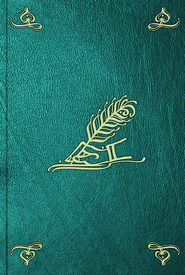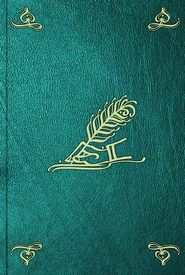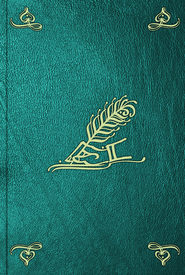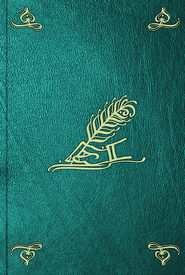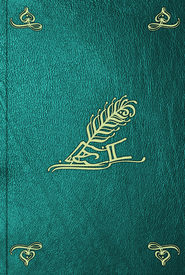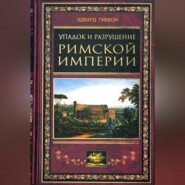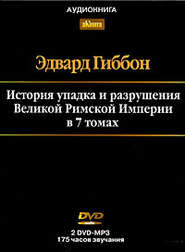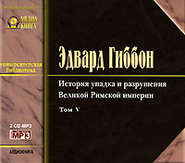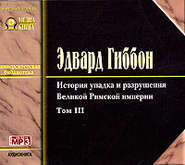По всем вопросам обращайтесь на: info@litportal.ru
(©) 2003-2025.
✖
Private Letters of Edward Gibbon (1753-1794) Volume 1 (of 2)
Настройки чтения
Размер шрифта
Высота строк
Поля
Admiral Rodney and Charles Fox were elected for Westminster, September 22, 1780, against Lord Lincoln.
Footnote_466_466
Admiral Keppel was returned for Surrey, after being defeated at Windsor by Portlock Powney. George III. canvassed for the latter. "The pony with the powerful rider has carried away the plate" (Warner to G. Selwyn, September, 1780).
Footnote_467_467
Edward James Eliot, eldest son of Mr. Eliot, was elected for St. Germains. He was made a Commissioner of the Treasury in July, 1782.
Footnote_468_468
William Eden, M.P. for Woodstock, was appointed in October, 1780, principal secretary to the Lord Lieutenant and Privy Council of Ireland.
Footnote_469_469
Benjamin Langlois, M.P. for St. Germains in the last Parliament, made room for Mr. Dudley Long. He was made keeper of his Majesty's stores, ordnance, and ammunition of war in June, 1778, and was appointed a Commissioner for Trade and Plantations vice Soame Jenyns.
Footnote_470_470
The Gazette for December, 1780, announces that the grant of the dignity of a baron of the kingdom of Ireland was conferred on John Baker Holroyd, Esq. – Baron Sheffield, of Dunamore, in the county of Meath. "I had a long conversation," writes Miss Burney in 1781, "with the new Lord Sheffield. He gave me a long account of his Coventry affairs, and of the commitment of the sheriffs to Newgate. He is a spirited and agreeable man, and, I doubt not, will make himself conspicuous in the right way."
Footnote_471_471
At the general election in September, 1780, Colonel Holroyd's re-election for Coventry was prevented by no return being made. After a hearing before the House, the sheriffs of Coventry were committed to Newgate, and a new election ordered. The poll began towards the end of November, and remained open for thirty days. At the close, though a large majority voted for Colonel Holroyd and Mr. Yeo, Sir Thomas Hallifax and Mr. Thomas Rogers were declared duly elected. The unsuccessful candidates petitioned against the return. The first day on which a committee could be balloted for was June 26, 1781. But on the motion of Lord Beauchamp (January 23) the petition of Lord Sheffield and Mr. Yeo was referred to a committee for February 15. The return was amended by an order of the House, dated February 27, 1781, by substituting for Hallifax and Rogers the names of Colonel Holroyd (who in the interval had been created Lord Sheffield) and Mr. Edward Roe Yeo.
Footnote_472_472
Lord Buckinghamshire was Lord Lieutenant of Ireland. The reference is to Colonel Holroyd's elevation to the Irish peerage as Lord Sheffield.
Footnote_473_473
The Empress Maria Theresa died November 29, 1780.
Footnote_474_474
The second and third volumes of the Decline and Fall of the Roman Empire. Gibbon had presented his first volume of the Decline and Fall to the Duke of Gloucester. When the second volume appeared, it was, in like manner, presented to the Duke, who "received the author with much good nature and affability, saying to him, as he laid the quarto on the table, 'Another d – mn'd thick, square book! Always scribble, scribble, scribble! Eh! Mr. Gibbon?'" (Best's Personal and Literary Memorials, p. 68). "You will be diverted to hear," writes Walpole to Mason, January 27, 1781, "that Mr. Gibbon has quarrelled with me. He lent me his second volume in the middle of November. I returned it with a most civil panegyric. He came for more incense; I gave it, but alas! with too much sincerity; I added, 'Mr. Gibbon, I am sorry you should have pitched on so disgusting a subject as the Constantinopolitan History. There is so much of the Arians and Eunomians, and semi-Pelagians; and there is such a strange contrast between Roman and Gothic manners, and so little harmony between a Consul Sabinus and a Ricimer, Duke of the Palace, that though you have written the story as well as it could be written, I fear few will have patience to read it.' He coloured: all his round features squeezed themselves into sharp angles; he screwed up his button-mouth, and rapping his snuff-box, said, 'It had never been put together before' – so well, he meant to add – but gulped it. He meant so well certainly, for Tillemont, whom he quotes in every page, has done the very thing. I well knew his vanity, even about his ridiculous face and person, but thought he had too much sense to avow it so palpably."
Footnote_475_475
"When he ascended the throne, his pride was sometimes cruelly mortified by the reflection that the slaves who would not dare to censure his defects were not worthy to applaud his virtues" (Decline and Fall of the Roman Empire, vol. iii. ch. xxii.). Gibbon quotes the sentiments from the words of Julian himself (Ammianus, xxii. 10).
Footnote_476_476
Probably General Sir Richard Pearson, K.B., who died suddenly at Bath of gout in the stomach, February 13, 1781.
Footnote_477_477
Mrs. Hutcheson, whose maiden name was Lawrence, married as her first husband Colonel Steward. Her second husband, Archibald Hutcheson, M.P. for Hastings, at the time of his death (1740) commended her to the guidance of William Law. She was joined by Miss Hester Gibbon, and the two ladies, in 1743, settled at King's Cliffe, in a house belonging to Law. There Mrs. Hutcheson founded a school for boys. She died at the age of ninety-one, in January, 1781, and, at her own request, was buried at the feet of Mr. Law.
Footnote_478_478
William Hayley (1745-1820) was a voluminous poet. Byron (English Bards and Scotch Reviewers) attacks him with severity —
"Whether he spin poor couplets into plays,
Or damn the dead with purgatorial praise,
His style in youth or age is still the same,
For ever feeble and for ever tame."
In 1780 he had addressed to Gibbon An Essay on History, in Three Epistles. He married, in 1769, Eliza Ball, daughter of the Dean of Chichester. The marriage proved unhappy; but it should be added that Mrs. Hayley adopted her husband's illegitimate son, who, born in 1780, afterwards became the sculptor, and treated him as her own child. In 1789 Hayley was separated from his wife, whose mind had become affected. Hayley was at this time living at Eartham, in Sussex, a property which he had inherited from his father.
Footnote_466_466
Admiral Keppel was returned for Surrey, after being defeated at Windsor by Portlock Powney. George III. canvassed for the latter. "The pony with the powerful rider has carried away the plate" (Warner to G. Selwyn, September, 1780).
Footnote_467_467
Edward James Eliot, eldest son of Mr. Eliot, was elected for St. Germains. He was made a Commissioner of the Treasury in July, 1782.
Footnote_468_468
William Eden, M.P. for Woodstock, was appointed in October, 1780, principal secretary to the Lord Lieutenant and Privy Council of Ireland.
Footnote_469_469
Benjamin Langlois, M.P. for St. Germains in the last Parliament, made room for Mr. Dudley Long. He was made keeper of his Majesty's stores, ordnance, and ammunition of war in June, 1778, and was appointed a Commissioner for Trade and Plantations vice Soame Jenyns.
Footnote_470_470
The Gazette for December, 1780, announces that the grant of the dignity of a baron of the kingdom of Ireland was conferred on John Baker Holroyd, Esq. – Baron Sheffield, of Dunamore, in the county of Meath. "I had a long conversation," writes Miss Burney in 1781, "with the new Lord Sheffield. He gave me a long account of his Coventry affairs, and of the commitment of the sheriffs to Newgate. He is a spirited and agreeable man, and, I doubt not, will make himself conspicuous in the right way."
Footnote_471_471
At the general election in September, 1780, Colonel Holroyd's re-election for Coventry was prevented by no return being made. After a hearing before the House, the sheriffs of Coventry were committed to Newgate, and a new election ordered. The poll began towards the end of November, and remained open for thirty days. At the close, though a large majority voted for Colonel Holroyd and Mr. Yeo, Sir Thomas Hallifax and Mr. Thomas Rogers were declared duly elected. The unsuccessful candidates petitioned against the return. The first day on which a committee could be balloted for was June 26, 1781. But on the motion of Lord Beauchamp (January 23) the petition of Lord Sheffield and Mr. Yeo was referred to a committee for February 15. The return was amended by an order of the House, dated February 27, 1781, by substituting for Hallifax and Rogers the names of Colonel Holroyd (who in the interval had been created Lord Sheffield) and Mr. Edward Roe Yeo.
Footnote_472_472
Lord Buckinghamshire was Lord Lieutenant of Ireland. The reference is to Colonel Holroyd's elevation to the Irish peerage as Lord Sheffield.
Footnote_473_473
The Empress Maria Theresa died November 29, 1780.
Footnote_474_474
The second and third volumes of the Decline and Fall of the Roman Empire. Gibbon had presented his first volume of the Decline and Fall to the Duke of Gloucester. When the second volume appeared, it was, in like manner, presented to the Duke, who "received the author with much good nature and affability, saying to him, as he laid the quarto on the table, 'Another d – mn'd thick, square book! Always scribble, scribble, scribble! Eh! Mr. Gibbon?'" (Best's Personal and Literary Memorials, p. 68). "You will be diverted to hear," writes Walpole to Mason, January 27, 1781, "that Mr. Gibbon has quarrelled with me. He lent me his second volume in the middle of November. I returned it with a most civil panegyric. He came for more incense; I gave it, but alas! with too much sincerity; I added, 'Mr. Gibbon, I am sorry you should have pitched on so disgusting a subject as the Constantinopolitan History. There is so much of the Arians and Eunomians, and semi-Pelagians; and there is such a strange contrast between Roman and Gothic manners, and so little harmony between a Consul Sabinus and a Ricimer, Duke of the Palace, that though you have written the story as well as it could be written, I fear few will have patience to read it.' He coloured: all his round features squeezed themselves into sharp angles; he screwed up his button-mouth, and rapping his snuff-box, said, 'It had never been put together before' – so well, he meant to add – but gulped it. He meant so well certainly, for Tillemont, whom he quotes in every page, has done the very thing. I well knew his vanity, even about his ridiculous face and person, but thought he had too much sense to avow it so palpably."
Footnote_475_475
"When he ascended the throne, his pride was sometimes cruelly mortified by the reflection that the slaves who would not dare to censure his defects were not worthy to applaud his virtues" (Decline and Fall of the Roman Empire, vol. iii. ch. xxii.). Gibbon quotes the sentiments from the words of Julian himself (Ammianus, xxii. 10).
Footnote_476_476
Probably General Sir Richard Pearson, K.B., who died suddenly at Bath of gout in the stomach, February 13, 1781.
Footnote_477_477
Mrs. Hutcheson, whose maiden name was Lawrence, married as her first husband Colonel Steward. Her second husband, Archibald Hutcheson, M.P. for Hastings, at the time of his death (1740) commended her to the guidance of William Law. She was joined by Miss Hester Gibbon, and the two ladies, in 1743, settled at King's Cliffe, in a house belonging to Law. There Mrs. Hutcheson founded a school for boys. She died at the age of ninety-one, in January, 1781, and, at her own request, was buried at the feet of Mr. Law.
Footnote_478_478
William Hayley (1745-1820) was a voluminous poet. Byron (English Bards and Scotch Reviewers) attacks him with severity —
"Whether he spin poor couplets into plays,
Or damn the dead with purgatorial praise,
His style in youth or age is still the same,
For ever feeble and for ever tame."
In 1780 he had addressed to Gibbon An Essay on History, in Three Epistles. He married, in 1769, Eliza Ball, daughter of the Dean of Chichester. The marriage proved unhappy; but it should be added that Mrs. Hayley adopted her husband's illegitimate son, who, born in 1780, afterwards became the sculptor, and treated him as her own child. In 1789 Hayley was separated from his wife, whose mind had become affected. Hayley was at this time living at Eartham, in Sussex, a property which he had inherited from his father.







